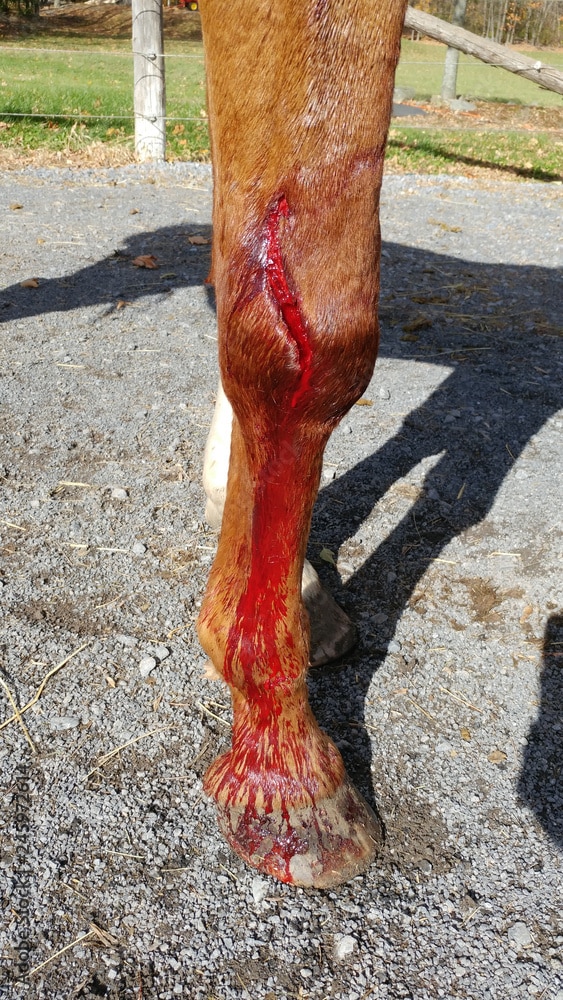Featured, First Aid, Veterinary, Wound Care
Help my horse is bleeding
The Horse Hub asked equine vet Alex Paterson, about blood loss in horses – how much is too much?
Spill a litre of milk on the floor and it looks like a lake! So, when your horse is bleeding how do you know whether the blood loss is serious? – The answer is you probably won’t but, understanding a little about your horse’s blood volume might help you cope while waiting for your vet to arrive.
The blood component usually makes up around 6-10% of a horse’s bodyweight. A 500kg horse contains around 40 litres of blood. So, while that litre of blood loss might look very dramatic, it will not be life threatening. A horse can lose up to 25% of its blood volume without going into shock or needing a transfusion. BUT, this does not mean veterinary intervention is not needed for a significant bleed.

Profuse bleeding comes either from a vein or an artery – what’s the difference?
Arterial bleeding
Arterial blood is bright red. It comes from the arteries leading away from the heart and will spurt in time to the horse’s heartbeat.
Venous blood
Venous blood is on its way back to the heart; it is darker in colour than arterial blood, and oozes continuously.
What should you do if your horse is bleeding profusely from an injury?
Apply padding and pressure. CALL YOUR VET.
What can you use to stem blood flow in an emergency?
Essentially anything that works –any padding can be used under a bandage in an emergency
- Nappies
- Bath towels
- Sanitary towels
- Lots of padding lots of bandages
- You can even use cling film and duct tape as bandages with appropriate padding
Non traumatic bleeds
A common site of blood loss in horses that is not necessarily related to trauma is from the nose. Some horses do bleed a little after exercise, but this usually stops on its own quite quickly.
Some racehorses will haemorrhage from one nostril quite dramatically after racing – again this generally stops on its own.
It is important though in both cases, that this bleeding should be investigated by your vet if it happens repeatedly, as it may be a sign of something more serious, such as an infection.
Bleeding from the ear in horses is rare and would generally be associated with head trauma, which would certainly require veterinary attention.
There is not much an owner can do while waiting for a vet to arrive for either a bleed from the ear or the nostril, other than to keep the horse quiet.
Further reading: How do wounds in horses heal? What should I put on my horse’s wound?
